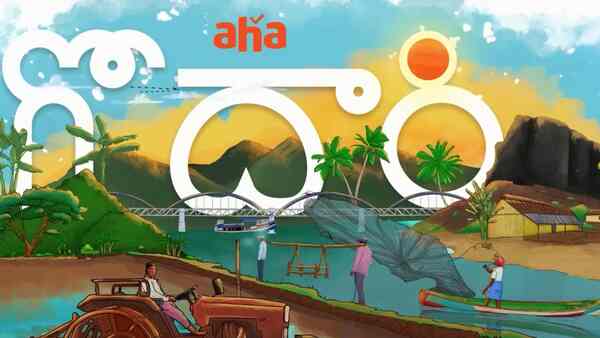Aha Godari review: A sketchy, superficial portrait of a river
Conceptualised and directed by Swathi Diwakar, the documentary is produced by Gyabo Stories

Last Updated: 02.35 PM, Feb 26, 2024
It’s an intriguing idea for a documentary to encapsulate the significance of a river while tracing its journey through the various locations that it flows past. Not only do we get to know the story of the river, but also its influence on traditions, cultures, and livelihoods across states, besides presenting a sorry, universal picture of human negligence.
Aha Godari, directed by Swathi Diwakar, is an ode to Godavari, capturing its cultural roots through several voices whose livelihoods are dependent on it. While the intent behind the documentary is beyond question, the result is far from satisfying. It ranges from being a visual Wikipedia to a tourism brochure filled with pompous descriptions, breaking no new ground.
Journeying from Brahmagiri to Antarvedi, Aha Godari treats Godavari as a unifying force, taking a deep dive into the river’s origins, traversing across states, discussing beyond religions, languages, throwing light on its past and the precarious road ahead. The documentary, within its one-hour narrative, is information-heavy and lacks new insights.
A good documentary on a familiar subject is expected to explore its lesser-known dimensions or at least present well-known facts in a different light. Aha Godari attempts to do the former, but the detailing and the effort to document tradition are sketchy. The grandiose commentary overpowers the unheard stories of the insiders and the narrative structure is old-school and conventional.
Many little stories of the palanquin bearers in Maharashtra, the devotees in Trayambakeshwar, the fishing community in Ravulapalem, or the open boat (laanchi in Telugu) operator near Papikondalu are compelling, but they don’t offer a holistic portrait of their lives. The questioning isn’t pointed and lacks an author’s voice to lend it some context/provide a larger purpose.
The dominant focus on the Kaleswaram project sticks out like a sore thumb and gives the impression of a television commercial funded by the establishment. Beyond the forced sympathy (reduced to a one-liner or two), there’s no honest attempt to discuss the impact of the Polavaram project on Papikondalu or the tribal groups. More often than not, the commentary is restricted to religion/devotion.
The anecdotes about the Hazur Sahib at Nanded (Maharashtra), the takhat snan during Diwali and the stories of religious harmony surrounding the Royal Mosque in Rajahmundry pique your interest but could’ve been backed by better detailing. In the segments around Sir Arthur Cotton, Bhadrachalam and Basara, one gets the impression that the makers were trying to tick all the boxes in a checklist without any effort to dig deeper.
It’s also quite disappointing for a Telugu documentary on Godavari to not even offer a perfunctory glimpse of the contributions across music, literature and cinema that have celebrated the glory of the river over the years. Beyond the token mention of the popular song ‘Vedamla Ghoshinche Godavari,’ the documentary offers a lopsided view of several mediums that have shaped the idea of the river among the masses.
It’ll be an exaggeration to say the documentary leaves you unaffected, it is just too satisfied with skimming the surface. It largely works when the discussion is limited to the geography, environmental concerns and a few traditions. It’s also thoughtful of Aha Godari’s creators to caution viewers about the indifference with which we treat our natural resources.
Suvishal’s breathtaking cinematography is certainly a reason why you wouldn’t mind a one-time watch. Ree’s good use of melody and classical music through Indian instruments in the background score contributes to the authenticity in addition to Anasuya Ravikanti’s authoritative narration.
Verdict:
Aha Godari is a disappointing, half-baked account of a river that gets carried by ‘information’ more than insights or adequate detailing. Beyond the stunning cinematography and the impressive music score, the takeaways are not quite compelling.

 Premium
Premium